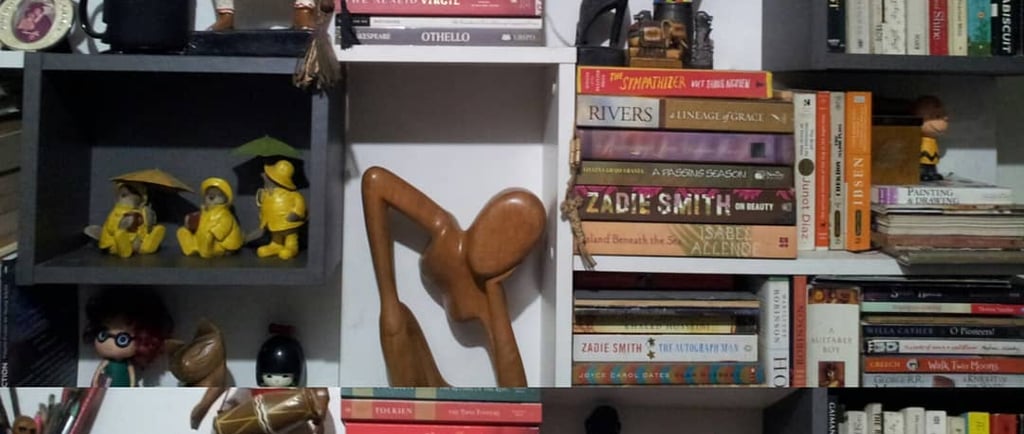12 World Literature Classics Often Required Reading for High School Seniors
UKAYMUNDO


A truly global literary education empowers students to see the world
Below is a list of 12 classics frequently assigned—or worth assigning—in senior-level world literature courses. These texts span continents, time periods, and genres, reflecting the richness and complexity of global storytelling.
1. Things Fall Apart by Chinua Achebe (Nigeria)
Achebe's groundbreaking novel is a cornerstone of African literature. It tells the story of Okonkwo, a proud Igbo warrior, and the unraveling of his traditional society amid British colonization and Christian missionary influence. Often praised for giving voice to African perspectives on colonialism, Things Fall Apart serves as an essential counter-narrative to Eurocentric histories. Its themes of identity, tradition, and cultural change make it a powerful text for senior analysis.
2. The Tale of Genji by Murasaki Shikibu (Japan)
Regarded as the world’s first novel, this 11th-century Japanese classic offers an intricate portrait of court life and emotional relationships during the Heian period. Although often excerpted in high school curricula, The Tale of Genji challenges students to explore questions of aesthetics, impermanence (mono no aware), and gender politics in classical literature. Murasaki’s voice as a female author in a male-dominated world adds another rich layer for discussion.
3. One Hundred Years of Solitude by Gabriel García Márquez (Colombia)
A masterpiece of magical realism, Márquez’s novel chronicles the rise and fall of the Buendía family in the fictional town of Macondo. Through lush, cyclical storytelling and political allegory, One Hundred Years of Solitude examines the effects of time, memory, and history on Latin American identity. Its surreal yet grounded narrative makes it both a literary feat and an emotional journey, ideal for mature readers ready to tackle nonlinear narratives.
4. The Kite Runner by Khaled Hosseini (Afghanistan/USA)
Set against the backdrop of a turbulent Afghanistan, this contemporary novel follows the complicated friendship between Amir and Hassan. The book explores guilt, redemption, father-son relationships, and the immigrant experience. Often included in high school syllabi for its emotional resonance and accessible prose, The Kite Runner also invites discussions on cultural identity and historical trauma.
5. Antigone by Sophocles (Ancient Greece)
Though ancient, Antigone remains timeless. This Greek tragedy explores civil disobedience, loyalty, and the conflict between divine and human law. The protagonist, Antigone, becomes an enduring symbol of moral courage. Often taught alongside contemporary texts dealing with justice and resistance, it serves as a bridge between classical and modern literature.
6. Persepolis by Marjane Satrapi (Iran)
This graphic memoir depicts Satrapi’s childhood in post-revolutionary Iran. With stark black-and-white imagery and poignant narration, Persepolis sheds light on themes of identity, repression, and resilience under authoritarian rule. Its unique format introduces students to visual literacy, while its autobiographical approach makes history more personal and immediate.
7. Cry, the Beloved Country by Alan Paton (South Africa)
This lyrical novel centers on the journey of a Zulu pastor searching for his son in apartheid-era Johannesburg. Through its parallel stories of racial injustice and spiritual healing, Cry, the Beloved Country provides a humane and heart-wrenching exploration of systemic inequality. It’s an excellent gateway into discussions of justice, forgiveness, and national identity.
8. Noli Me Tangere by José Rizal (Philippines)
Written during Spanish colonial rule, Rizal’s Noli Me Tangere is both a romantic novel and a revolutionary text. Through the story of Crisóstomo Ibarra and his return to a corrupt homeland, the novel critiques social injustice, religious hypocrisy, and colonial abuse. While less known in Western schools, it is central to Filipino literature and nationalism, and its inclusion offers an anti-colonial perspective that enriches any global syllabus.
9. Frankenstein by Mary Shelley (England)
Shelley’s gothic tale of science and creation gone awry is more than a horror story—it’s a meditation on ambition, alienation, and the ethical limits of human knowledge. With its Romantic-era roots and complex narrative structure, Frankenstein raises questions about responsibility and what it means to be human. It also provides an excellent entry point for feminist readings and scientific ethics.
10. The God of Small Things by Arundhati Roy (India)
Roy’s Booker Prize-winning debut captures the intricacies of caste, love, and political upheaval in Kerala, India. Told in a fragmented narrative and rich in sensory detail, The God of Small Things challenges students to think about memory, social norms, and forbidden love. Its postcolonial context and experimental form make it an advanced but rewarding choice for senior students.
11. The Brothers Karamazov by Fyodor Dostoevsky (Russia)
This philosophical epic explores morality, free will, and faith through the lives of the Karamazov brothers. As a dense and thought-provoking novel, it introduces students to existential questions and ethical dilemmas that resonate with mature readers. While not always included in standard reading lists due to its length, it remains a popular choice in advanced literature courses.
12. Beloved by Toni Morrison (USA)
Morrison’s haunting novel about slavery, memory, and motherhood is widely studied for its poetic language and historical depth. Centered on Sethe, a woman haunted by the ghost of her dead child, Beloved forces students to grapple with America’s brutal legacy of slavery and the psychological costs of survival. Its nonlinear structure and interwoven perspectives challenge readers to piece together a fragmented past—a perfect task for students honing advanced literary analysis.
This list shows that “classic” literature isn’t bound by geography—it’s defined by the depth with which it explores what it means to be human.
